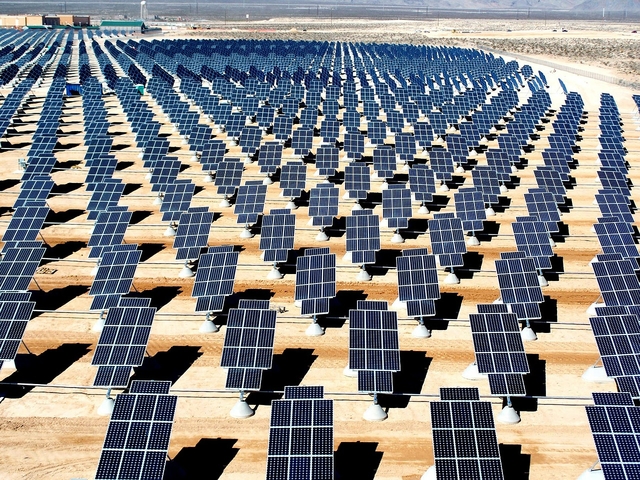Under its “Vision 2030”, Saudi Arabia has set a target of 9.5W of wind and solar energy. Deputy crown prince Mohammed bin Salman is leading the country in its aim to reduce the country’s dependence on oil. The main target is to “create a more diverse and sustainable economy”, co-financed by the country’s $2 trillion Sovereign Fund. The launch of the King Salman Renewable Energy Initiative and “initial” renewable energy target of 9.5GW, announced in the “Saudi Arabia Vision 2030” paper in April, is the highest level of commitment to renewable energy, ever made by the Kingdom.
Legal and regulatory frameworks for the deployment of renewable energy and the involvement of the private sector are to be put in place, with the aim of encouraging public-private partnerships and promoting local manufacture. The 9.5GW target suggests that the country will be taking steps to grow its renewable energy capacity in increments, taking advantage of future cost declines and efficiency improvements. At the same time, Saudi Arabia also intends to explore the use of emerging technologies.
A key point to note is the country’s commitment to “guarantee the competitiveness of renewable energy through the gradual liberalization of the fuel market.” It shows a much greater potential to deliver on its renewable energy goals than ever before. There has been a very gradual move towards the adoption of renewables in many net energy exporting countries. Subsidies for conventional fuels have so far presented a barrier, as subsidised oil has been fuelling domestic power generation.
If fuel and electricity subsidies continue to be reduced, there will be a strong case for distributed solar energy in Saudi Arabia. The Kingdom has already taken the first step in this direction, with a considerable increase in electricity tariffs at the beginning of 2016. By liberalising the fuel market, Saudi Arabia will effectively support renewable energy technologies, particularly within solar, while creating a platform, which will enable successful competition against conventional energy generation; similar to what is happening across other markets.
The policy paper highlights Saudi Arabia’s ambition in becoming a renewable energy powerhouse, as well as its intended investments in localised manufacturing and research and development. Ahmed S. Nada, Vice President and Region Executive for First Solar in the Middle East, says: “While more details are forthcoming, […] my hope is that Saudi Arabia will take a consultative approach on its renewable energy policy framework by leaning on capable, credible industry partners to share their expertise. This will allow the country to skirt the steep learning curve that other markets have had to endure.”
